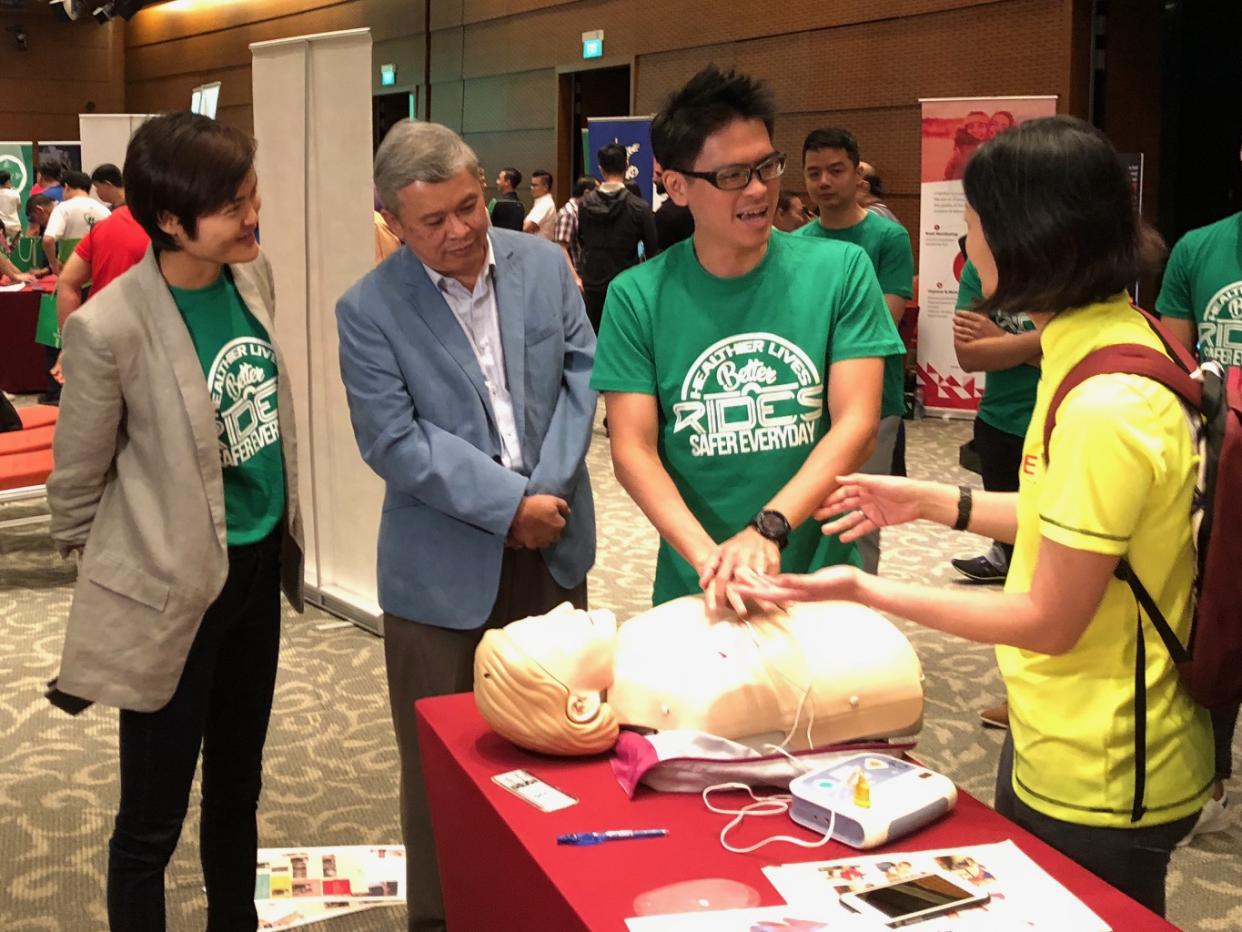Grab unveils fatigue monitoring tool for drivers

Grab drivers will soon be able to monitor their fatigue and get reminders to rest through a new in-app feature, based on factors such as the number of hours they have spent on the road, their age and profile and the time of day.
This is among a slew of new safety and health initiatives unveiled by the ride-hailing app on Tuesday (16 October). The feature is currently available to a small group of Grab drivers and will be rolled out to all drivers by the end of October.
Others include training drivers in resuscitation and using a defibrillator, free health screenings for an initial 1,000 drivers, and getting passengers to provide additional information for verification purposes.
Grab is partnering with government agencies such as the Health Promotion Board and Traffic Police for these initiatives. It is also starting a year-long series of occupational safety events, which include road safety training programmes.
Speaking to reporters at a press conference, Grab co-founder Tan Hooi Ling noted that Southeast Asia accounts for some 25 per cent of worldwide road traffic fatalities, citing a 2015 World Health Organisation report. In Singapore, recent statistics from the Ministry of Manpower show that people here work the longest working hours in general: 45 hours a week on average.
Tan also said that Grab’s incident rates – which include accidents and other incidents such as abuse and harassment – have decreased across the region by 40 per cent over the last year since the third quarter of 2017. When pressed, she would not give specific figures but did reveal that Grab had no fatalities on the road in Singapore in 2017.
In August, a Grab driver claimed to have worked for 24 hours straight as a personal challenge, earning $912 in the process.
Grab driver Lee Yick Keong, 57, told reporters that while he typically works 10-12 hours a day, he and his colleagues usually stop every one to two hours for breaks.
“We take toilet breaks and tea breaks. We know when to stop,” said Lee, who has been working with Grab for almost five years.
Ang Hin Kee, executive advisor to the National Private Hire Vehicles Association, referred to a 2014 National University Health System study on stress factors faced by drivers and noted that one factor cited was the need for drivers to cruise around looking for passengers.
Ang, who is also advisor to the National Taxi Association, described the Grab initiatives as a “great boost” to drivers and passengers alike and expressed hopes that other industry players would follow their lead.
The new measures come three weeks after Grab and Uber were fined a combined $13 million by Singapore’s competition watchdog for their merger in March 2018. The Competition and Consumer Commission of Singapore (CCCS) informed both parties to implement various remedies including ordering them to “lessen the impact of the transaction” on drivers and riders.
Asked if Grab still intended to appeal against the fine, Grab Singapore head Lim Kell Jay would only say, “We are glad that the CCCS episode is behind us….we can now focus on serving our customers (and) drivers.”



